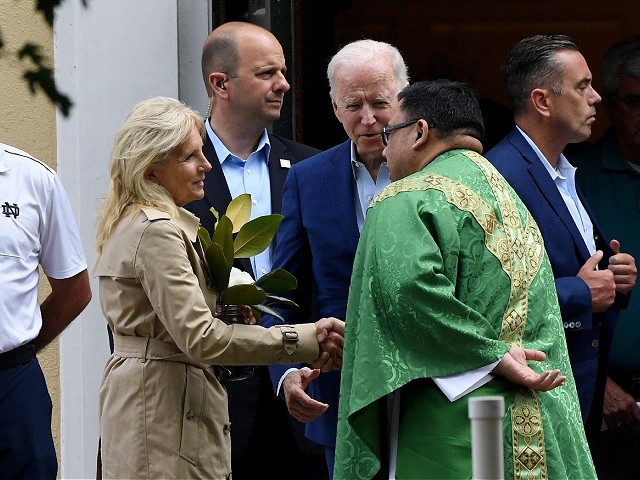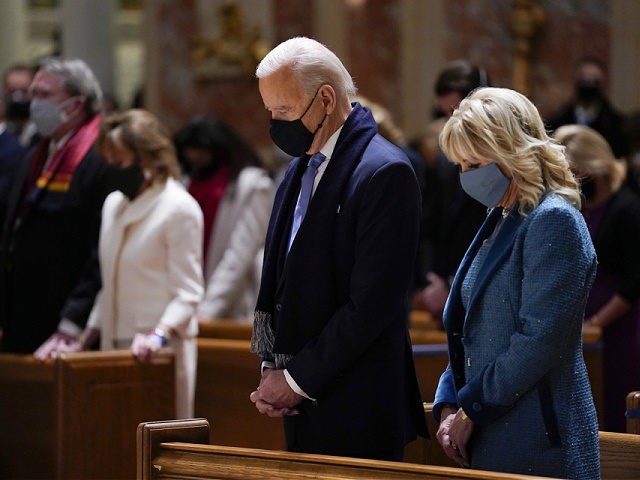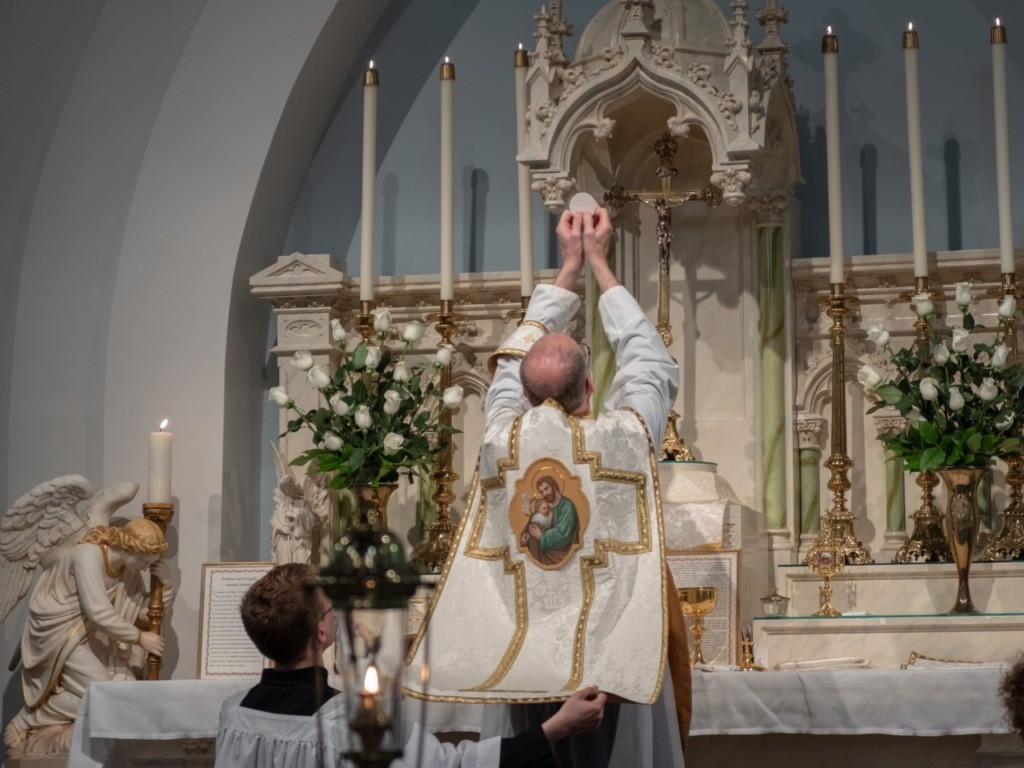The United States bishops released a long-awaited document on worthiness to receive Holy Communion Wednesday, in which they insist that politicians have a particular responsibility to uphold the Church’s moral teachings.
The text, titled “The Mystery of the Eucharist in the Life of the Church,” comes in the wake of months of discussion arising from the anomalous situation of a U.S. president who calls himself Catholic and yet promotes abortion, which the Church considers a grave moral evil.

US President Joe Biden (C) and First Lady Jill Biden (L) speaks with a priest as they leave St. Joseph on the Brandywine Catholic Church in Wilmington, Delaware, June 19, 2021. – US Roman Catholic bishops issued a challenge on June 18 to President Biden over his support for abortion rights, agreeing to draft a statement on the meaning of holy communion which could potentially be used to deny the sacred rite to the US leader. (Photo by OLIVIER DOULIERY/AFP via Getty Images)
The reception of Holy Communion entails communion with the Church in both an invisible and a visible dimension, the bishops write, and communion in its visible dimension “entails communion in the teaching of the Apostles, in the sacraments and in the Church’s hierarchical order.”
“Lay people who exercise some form of public authority have a special responsibility to form their consciences in accord with the Church’s faith and the moral law, and to serve the human family by upholding human life and dignity,” the document states.
“If a Catholic in his or her personal or professional life were knowingly and obstinately to reject the defined doctrines of the Church, or knowingly and obstinately to repudiate her definitive teaching on moral issues,” the text states, “he or she would seriously diminish his or her communion with the Church.”
“Reception of Holy Communion in such a situation would not accord with the nature of the Eucharistic celebration, so that he or she should refrain,” it continues.
“Reception of Holy Communion in such a situation is also likely to cause scandal for others, weakening their resolve to be faithful to the demands of the Gospel,” the document adds.
In the text, the bishops cite Pope John Paul II, in in saying that “cases of outward conduct which is seriously, clearly and steadfastly contrary to the moral norm” present “a manifest lack of proper moral disposition” and such persons are therefore “not to be admitted to Eucharistic communion.”
“It is the special responsibility of the diocesan bishop to work to remedy situations that involve public actions at variance with the visible communion of the Church and the moral law,” the bishops declare. “Indeed, he must guard the integrity of the sacrament, the visible communion of the Church, and the salvation of souls.”
In a January 20, 2021 statement, the president of the U.S. Bishops’ Conference, Archbishop José Gomez, underscored the glaring contradiction between President Biden’s positions on vital moral issues and his purported Catholic faith.
“I must point out that our new President has pledged to pursue certain policies that would advance moral evils and threaten human life and dignity, most seriously in the areas of abortion, contraception, marriage, and gender,” Gomez wrote.


COMMENTS
Please let us know if you're having issues with commenting.